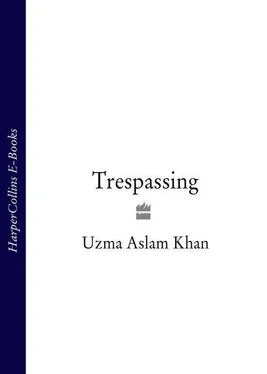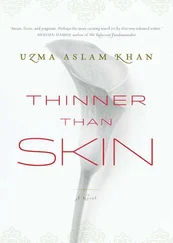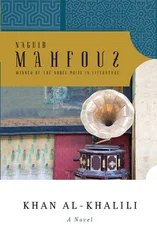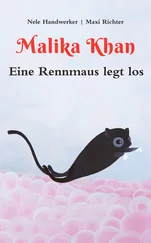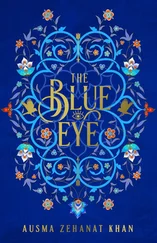Sipping the rest of her tea, Riffat continued, ‘Imagine Nissrine’s life if she resists. Waking up every morning to an icy household. Eating leftovers alone. Sly gossip forever in her ears. And that’s just the silent hate. What about all the guilt from her mother? “I’ve lost face all because of you.” Or, “Is this my reward for all the sacrifices we made?” Or, “Your father’s health is failing.” Or, “He’s leaving me just because of you …” To whom would the girl turn?’
Dia turned away, uncomfortable with where the conversation was heading. It was the first time Riffat had alluded to her own difficulties. She did it as though she told someone else’s story, as though this was for Nini. It wasn’t. It was for Dia. She was trying to tell her that she too would have to think about these things.
Her mother kept on. ‘And if it’s not Nini’s mother who’ll say those things, it’ll be someone else. And the older she gets, the more voices will chip in …’
Dia shut her eyes, hoping to shut out Riffat’s story. If Riffat had been coerced into marrying Dia’s large and delightful father, she didn’t want to know. If they’d little between them, she wouldn’t hear it. The man was dead now. It wasn’t fair.
‘… She’d have no one to turn to.’
‘Stop saying that,’ Dia blurted. ‘She’d have me, wouldn’t she?’
‘No, Dia. She’d need to look elsewhere. Some day, so will you.’
‘Pah!’ She could think of nothing more convincing to say.
‘I’m not saying you’ll become Nini. I’m saying she’s not you — and she’s not going to be either. For her, giving in may not only be easier but also more fulfilling. She may not think of it as giving in. Right now, you’re not in a position to judge. Yes,’ she added, ‘years from now, if she expects pity for her decision, maybe.’
Dia studied her intently. But Riffat’s face gave away nothing.
Wisps of salmon-pink brushed through the cloud cover as the sun set. The sky resounded with the call for Maghrib prayer. The muezzin had a thin, plaintive voice and when he sang, Dia felt the day close around her. It was as if the call asked what the day had brought. The same errors? Yes, exactly the same. Even so, God hadn’t lost hope entirely. There would be tomorrow, though one day tomorrow would run out. He would not keep spinning for ever.
It was the call that made Dia want to go to Him the most.
Inam Gul scurried into the bower with a mosquito coil. ‘More tea?’ he enquired.
‘No, thank you, Inam Gul. Everything was delicious. But our philosophical Dia dwells on matters your delicacies can’t appease — and she’ll infect us too if we’re not careful.’
Dia scowled at her mother and Inam Gul shook his head, safely commiserating with both. Then he piled the dishes and vanished into the swiftly descending darkness.
The twilight erupted with activity. Cats crossed paths and hissed; a chameleon’s eyes glittered like black ice; a car honked for the gate to be opened. When darkness fell, the car rumbled into its hole, and all was momentarily still.
Dia surprised herself by being the one to reopen the discussion. ‘You’ve always told me not to blindly go with things. That too many people let others decide their future, and it’s as if individual apathy has snowballed into a national one. If all Ninis go the same way, all their offspring will too, and nothing around us will ever change.’
She was doubly surprised when Riffat did not answer. And then she worried. Her mother was rarely at a loss for words.
At last Riffat replied, ‘Well, as I said, it may not just be pressure that’s pushing Nini. She may not be moving blindly, even if she is following tradition. It may work for her, if not immediately, maybe one day …’
Dia leaned forward. ‘You never used to believe in the one-day theory. You always said not to wait for miracles, but to live in the present.’
Riffat sighed. ‘I know, Dia. It’s just that, who knows, maybe Nini will find love, and the dear girl can be happy. That’s all. Love lurks in unexpected places.’ Her voice trailed.
Dia rolled her eyes. Her mother was in such a peculiar mood today. ‘Ninety per cent of women do this. You can hardly call it unexpected.’
‘Why not? Some of them, at least, do fall into love. And here I always thought you were a romantic, curling up in the arms of enchanted trees, lost in thousand-year-old stories. Don’t you believe anything is possible? Some women say they find love after marriage.’
Again Dia shifted uncomfortably. Did you? She couldn’t bring herself to ask. But she did know, as Nini too had recently pointed out, that it was the wife and not the single girl who grew into the plucky woman that revolutionized the production of silk in the country. Something about the arrangement had obviously worked for her. But was that all it was then — a settlement? Business partners, not lovers. Strangers, not friends.
Hardly a star lit the overcast sky. The cap of a crescent moon protruded from a pillow of clouds, then it too was masked.
Suddenly Riffat piped, ‘What’s the boy’s name anyway?’
Smoke from the mosquito coil snaked between their knees. Dia rose to place it further away from them. ‘Oh, some Daanishwar. Daanishwar Shafqat, I think Nini said.’
She’d barely returned to her seat when Riffat abruptly sat up. ‘Shafqat? Are you sure? Any idea what his father did?’ The voice had risen and was noticeably tight.
Dia folded her legs thoughtfully. ‘Nini said he’d been a well-respected doctor, although, like her family, this one’s run into some financial trouble. She gave me all the “important” details: the doctor’s father had been a modest, gentlemanly civil servant and brave journalist. Slogged to educate his son and all. The doctor left a widow and just one child …’ She stopped. Was that her mother wheezing? ‘What’s the matter, Ama? Wait, let me turn on the lights.’
‘No!’ Riffat shrieked. ‘No. Sit down.’
‘Wh …?’
‘How dare you go there without my permission!’ she snapped.
‘But …’
‘Be quiet! Not one word.’ She began pacing between the boles of the trees.
What had provoked this? Dia knew better than to pose the question now. Riffat rarely lost her temper, at home or at work. She tried to remember the last time it had happened. Was it when Hassan came home drunk one day, armed with a whisky bottle, and threatened to crack Dia’s head with it? Or when the eldest, Amir, offered one of Riffat’s rings to his Scottish girlfriend — now his wife? No, even then she’d not been in such a rage.
Breathing heavily, at last Riffat said, ‘I’ll say this once and once only. You’re not to blame, you didn’t know. But now you do. Take care never to step in that house again. Clear?’
What didn’t she know? What did she know now? Under her breath, Dia mumbled, ‘It’s not clear at all.’
A distracted Riffat returned to her dark corner and adjusted herself in the chair.
Dia gazed up at the sky, watching the wind stir the clouds that fragmented the moon. Then she glared at her mother. Her mother who always had a plan. She would know what should happen next. Dia didn’t.
The next day, when Riffat had left for the mill, Inam Gul followed Dia around the house, devising ways of discovering what had happened the previous evening.
‘You have to know everything, don’t you?’ She clicked her tongue.
‘But what do you mean?’ He sucked in his lips.
‘I’m sure you heard it all.’
‘Heard what?’
‘I’ll tell you something. That American boy and his mother are going to Nini’s house in two days. She wants me there.’
Читать дальше
Конец ознакомительного отрывка
Купить книгу
